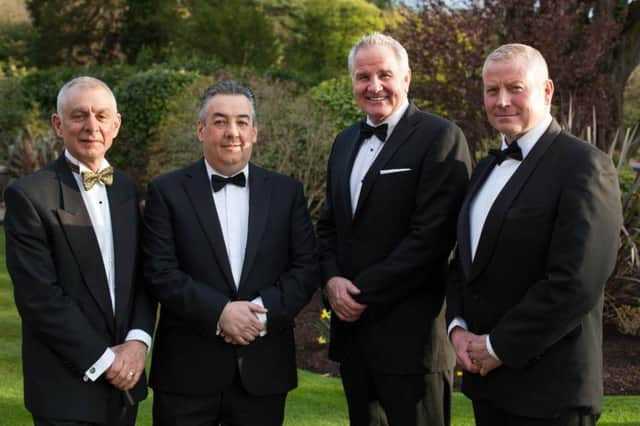Grain Trade says '˜Yes' to Europe


Speaking at the organisation’s annual dinner, held earlier this week, Mr O’Connor said that the referendum on UK membership of the EU represents a real challenge for the farming and food sectors.
“We, as NIGTA, do not believe that a UK exit from Europe will benefit Northern Ireland agriculture.
Advertisement
Hide AdAdvertisement
Hide Ad“As recently stated by some industry leaders within Europe, UK companies have open access to 500 million consumers and in the event of an exit no one has been able to guarantee our continued access to those consumers or markets.
“Northern Ireland’s feed industry imported almost three million tonnes of raw materials through our ports last year. Of this total, over half came from mainland Europe.
“We in Northern Ireland are the only part of the UK with a land border with Europe and every day substantial volumes of animal feed move across this border, both materials and finished feed.
“Agriculture in Northern Ireland also relies on the free flow of labor from inside and outside Europe to help keep our costs competitive whilst we trade in a global market.”
Advertisement
Hide AdAdvertisement
Hide AdMr O’Connor then asked the question: “will we keep this free flow of labour if we are outside the EU?”
Mr O’Connor also recognises that local agriculture is in the midst of some very challenging times. Courtesy of his speech, he highlighted the parlous state of milk prices while the pig industry continues to struggle.
“We still have no idea when and if we will get access to the Chinese markets with our pork and bacon,” he said.
“I am also aware that beef farmers are now losing in access of over £1 million per week.”
Advertisement
Hide AdAdvertisement
Hide AdMr O’Connor attributes these challenges to the fact that world milk production increased by 1.8% last year.
“Cheaper commodity prices, following years of good crops, reduced demand caused by poorer economic conditions in China and Africa and trade restrictions, especially in Russia, are other factors that have helped bring about the current situation,” he said.
He continued: “But we also have significant strengths, not least the family farm structure that prevails in Northern Ireland; the husbandry skills of our farmers, their dedication and their work ethic.
“We also have a well-educated workforce at farm level which should be the foundation of a highly successful food industry.
Advertisement
Hide AdAdvertisement
Hide Ad“We, as an industry, need to build on this foundation. We need communication, integration, a market focus and a common purpose throughout the food chain.
Mr O’Connor concluded: “The Northern Ireland food industry has to step up its game and become more competitive, better at marketing and more innovative.
“Most importantly we have to build on our strengths, our climate, our green pastures, the strength of our people in farming, processing and the wider supply chain.
“Our island status gives us a natural barrier that makes it much easier for us to control our agri inputs and also to prevent the spread of disease. This has allowed us to create a food fortress with one of the highest integrity food supply chains in the world.
“We also have world class expertise in our local Universities, including the internationally recognised work on food safety at the Institute for Global Food Security at Queens plus AFBI and CAFRE.”